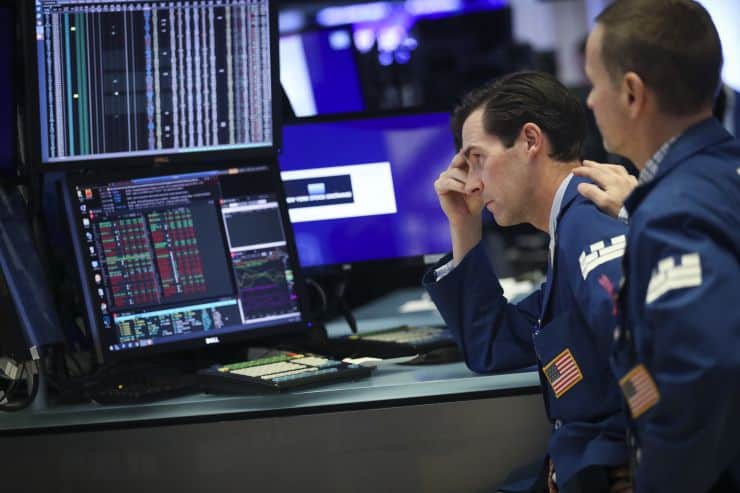
Stocks have fallen sharply as a trade war between the world’s two biggest economies ramped up in the past week, and according J.P. Morgan, it’s a good time to start buying.
Equity markets could still be in for a few more weeks of pain, but J.P. Morgan head of global and European equity, Mislav Matejka, expects an eventual rebound. In the meantime, he recommended that clients “look to buy the dip.”
“Our core view remains that one should use the prospective weakness as an opportunity to add,” Matejka said in a note to clients Monday. “We continue to believe that global equities will advance further before the next U.S. recession strikes.”
Matejka likened the recent weakness to May, when stocks struggled but bounced back by mid-June. He acknowledged recent headwinds like the dollar index breaking out and renewed trade escalation. The Dow Jones Industrial Average dropped as much as 500 points Monday as the trade war between the U.S. and China intensified. China, which has historically controlled its currency, allowed the yuan to fall to its lowest level against the dollar in more than a decade.
Last week, President Donald Trump announced that the U.S. would impose a 10% tariff on $300 billion worth of Chinese imports, effective Sept. 1. The news pushed the S&P 500 to its worst weekly performance of the year.
“Given these, and as we are in what is seasonally the poorest time of the year, markets could experience a few weeks worth of a pullback,” he said.
Still, Matejka said it’s “premature to expect a recession over the next quarters.” And while the Federal Reserve is easing, recession indicators like jobless claims have remained stable. When the Fed cuts interest rates as insurance, as it did last week and it isn’t followed by a recession, the next three, six and 12 months equity returns have historically been “very strong,” Matejka said.
“A U.S. recession has never started while the unemployment rate was falling,” he said. Earnings are also better than feared, with as many as 50% of companies raising guidance for the year.
Matejka is overweight U.S. equities thanks to record high buybacks and better earnings growth compared to the rest of the world. The firm is also overweight Japanese stocks, where valuations “appear very attractive”and positioning looks extremely light. J.P. Morgan is neutral on the Eurozone, where stocks “will advance in absolute terms, but are unlikely to outperform the U.S.” and underweight U.K. based on the political backdrop.
























